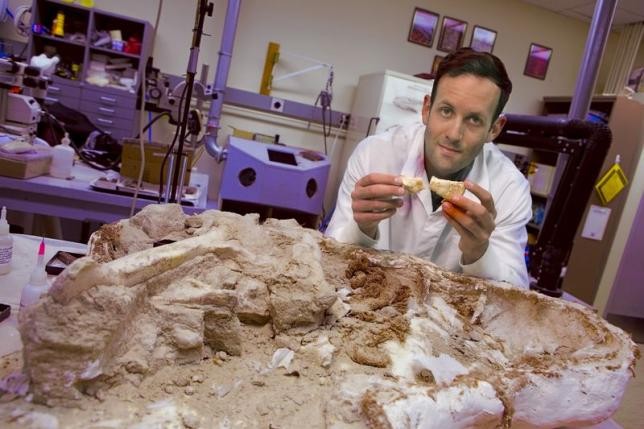Team of researchers have discovered that dinosaurs are not really cold-blooded animals as they previously believed, finding out that these creatures may neither cold-blooded nor warm-blooded but instead standing somewhere in between.
Since 19th century, scientists were in long debate whether dinos were cold-blooded and slow animals, Reuters reported.
In finding the answer, scientists studied the metabolism of 21 dinosaur species. Using dinos' thigh bones and growth rate (growth rings in fossil bones similar to trees), scientists created a formula based on the creature's body mass. T. rex, long-necked and duckbilled plant-eaters are among the species under the study.
They compared the findings to the existing data of living mammals, fish and reptiles, and birds.
Michael D'Emic, one of the researchers and specializes in bone microanatomy, said that dinosaurs were not just living by its physiology, but rather a lifestyle that really fits to the standard of a 'warm-blooded' mammal.
Being a bone microanatomy specialist, studying the bone structure based on the scale of the fraction of the width of a human hair, he and his colleagues found out that dinosaurs grew as fast as mammals and it has a metabolism and growth just like mammalian species.
Warm-blooded land animals such as mammals and birds were not able to reach the biggest size of dinosaurs. However, D'Emic said that being a warm-blooded animal would not have prevented dinosaurs to become big, according to NBC News.
Researchers added that the Earth was generally warmer during those times and dinos could have encountered an overheating problem. But thanks to their large bodies with hollow, air-filled bones in their skeleton and large air sacs, it helped to keep them cool.





















